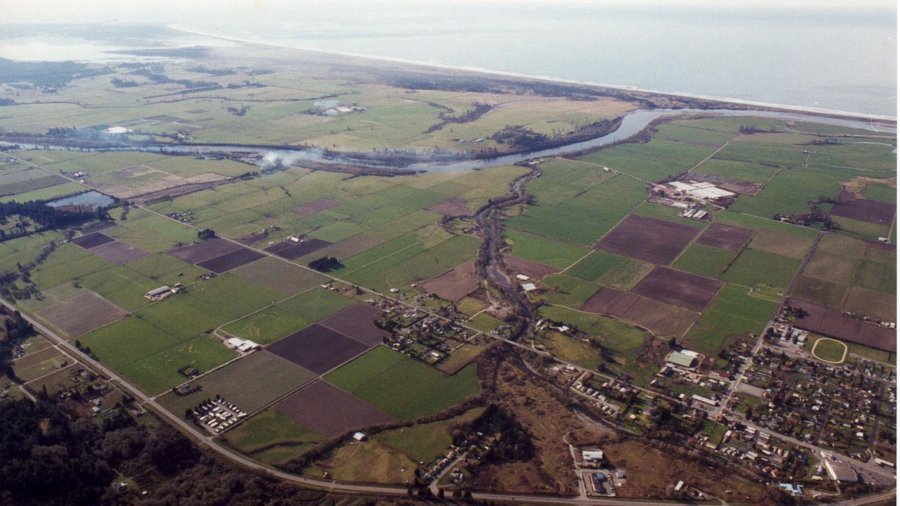Despite finding 17 pesticides in estuary waters and 10 instances of contamination, Water Board has no plans to rein in chemical use In late January, 2018, the state agency charged with enforcing the federal Clean Water Act released a long-awaited report on the results of two years of water quality testing in the Smith River Estuary. The testing detected 17 pesticides in the streams, creeks and ditches that feed the estuary, and 10 instances of contamination of the aquatic food chain. The findings appear to show that Easter lily farmers are in violation of the Clean Water Act, which was passed in 1972 in large part to protect precious aquatic resources such as the West Coast’s dwindling salmon populations.
Media
Just before Easter, the national on-line news magazine TakePart has run a major story about pesticides used on the Smith River Plain to grow Easter lilies. TakePart describes itself as “the digital division of Participant Media,” the company that brought us such films as Academy Award winning Spotlight, as well as An Inconvenient Truth and CITIZENFOUR.
Fallout from the lilies / California growers supply America for Easter — as neighbors fear pesticides Jane Kay, Chronicle Environment Writer Published 4:00 am, Friday, April 18, 2003 Link to Article Read more
In March 2015, in one of the most Orwellian displays of deference to industry ever shown by a California state agency, the California Department of Pesticide Regulation (DPR) gave Easter lily farmers an “Integrated Pest Management (IPM) Innovator Award” for allegedly reducing pesticide use “by about 50 percent over the last 20 years.” Read More


